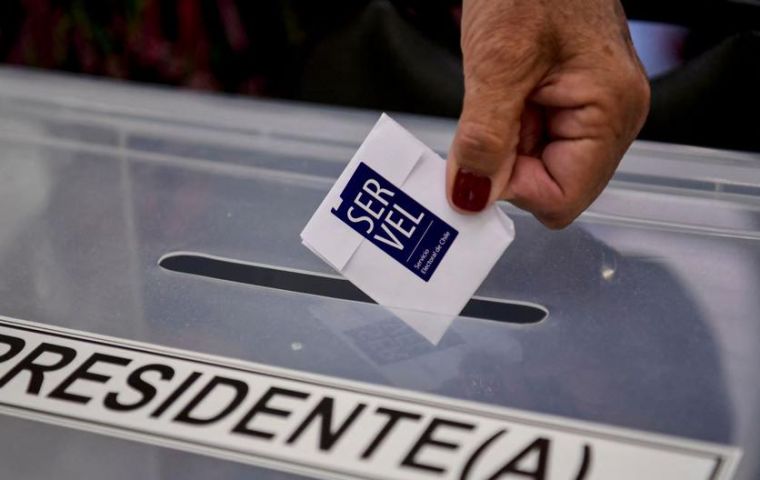MercoPress. South Atlantic News Agency
The main “political party” of Chile's presidential election: 50% + abstention
 Kast and Boric must try and convince half of the electorate to take an interest in the ballot
Kast and Boric must try and convince half of the electorate to take an interest in the ballot Although long queues at voting places and the delay suffered by many voters gave the impression that last Sunday's election in Chile had triggered a massive attendance, later in the day the Electoral Service figures showed exactly the contrary, just over 7 million Chileans bothered to go and vote for the next Chilean president.
Abstention was massive, the Electoral Registry included 15.030.973 citizens. of which 14.959,955 in Chile and 71.018 overseas, but in Chile 7.000.544 ballots were finally counted and 34.036 overseas, which makes Sunday's participation in the presidential election 47,34% of the Electoral Registry, less than 50%.
Participation in the parliamentary election and regional councils was slightly higher but not much more, which has been considered a serious alert call for the Chilean democracy and brings again the debate on whether voting should be mandatory or not. Voting for president and congress members from both Houses was mandatory until 2012. The new legislation also allowed Chileans overseas to vote and established that all Chileans were automatically enrolled in the Electoral Registry. This was achieved by crossing data with the birth registry.
The campaign for the December 19 runoff between the two candidates most voted on took off on Monday. They are Conservative Jose Antonio Kast and Gabriel Boric in the representation of a coalition of left-wing groupings. With less than three percentage points difference, 28% and 25,8%, respectively, the two candidates have before them several challenges, convincing a significant number of half of the absentee electorate to vote and adapting their government programs and promises to the potential support from the parties of the other seven presidential hopefuls that did not make it. Not to say the overall disenchantment with politics, which exploded during the several weeks of social rioting in 2019, and seems to remain latent.
On December 19, the winning candidate needs to ensure 50% plus one of the votes cast.




Top Comments
Disclaimer & comment rulesCommenting for this story is now closed.
If you have a Facebook account, become a fan and comment on our Facebook Page!